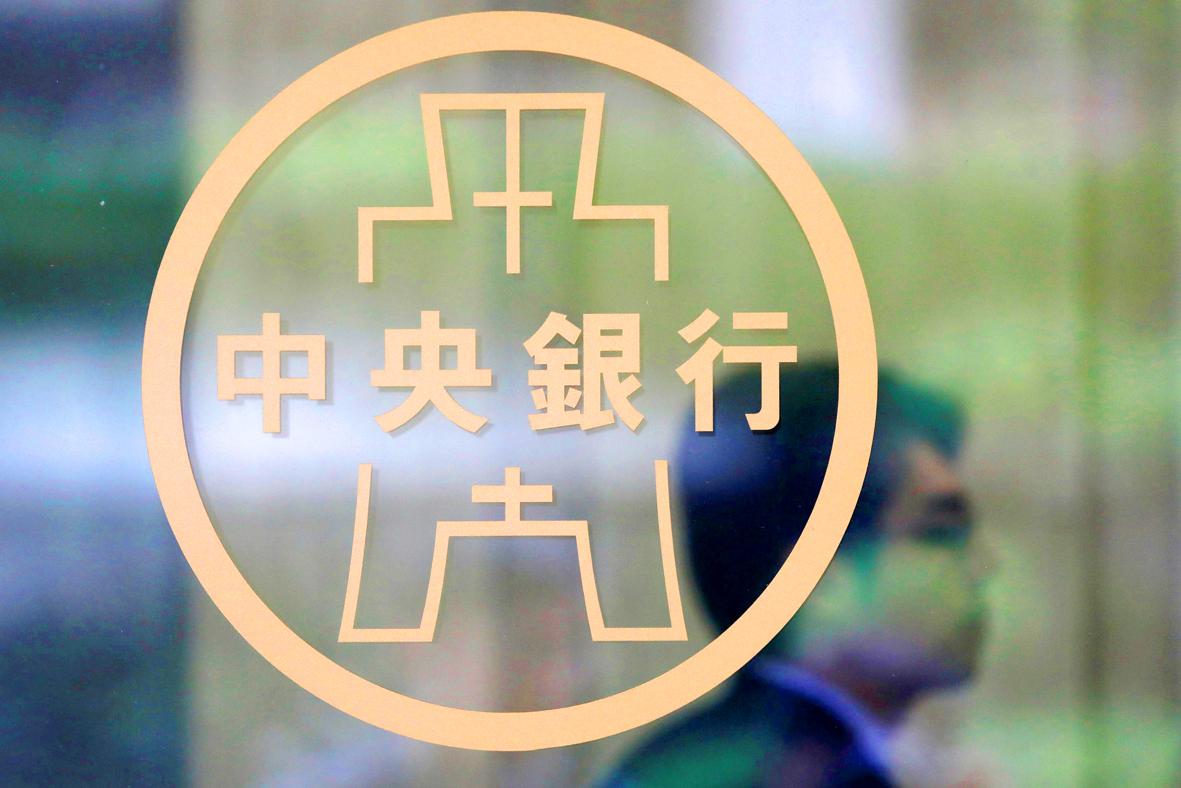The central bank yesterday set interest rates at 1 percent to 1.5 percent for funds to aid small and medium-sized enterprises (SMEs) hit by the COVID-19 pandemic, in an attempt to ward off a credit crunch.
The aid program, tentatively set at NT$200 billion (US$6.6 billion), as the monetary policymaker promised last week, would be available from April 1 and continue through the next 12 months to prevent cash-strapped firms from shutting operations and laying off workers, Department of Banking Director-General Chen E-dawn (陳一端) told a media briefing last night.
Central bank Governor Yang Chin-long (楊金龍) said on Thursday last week that the bank would meet with local financial institutions to work out lending terms in a timely manner.

Photo: Reuters
The liquidity injection and a rate cut of 25 basis points are the bank’s response measures to help local firms and households withstand the virus outbreak, which has wreaked havoc on airlines, travel agencies, hotels, retail stores and recreational facilities.
The bank caps borrowing costs at 1 percent for special loans of up to NT$2 million and no more than 1.5 percent for loans of up to NT$6 million, Chen said, adding that the program might go in conjunction with other government-backed relief and stimulus measures.
“Companies with cash needs may take out loans and lenders should be supportive to meet their social responsibility” at a difficult time, Chen said.
While the market remains awash with liquidity, the pace of growth has slowed, as money supply data released yesterday showed, the bank said.
The narrow money supply gauge of M1B, which refers to cash and cash equivalents, last month increased 7 percent from a year earlier, slowing from growth of 7.61 percent in January, the bank said.
The broad measure of M2, which includes savings deposits, time savings deposits, foreign-currency deposits and M1B, showed a similar trend, with a 4.35 percent pickup, compared with 4.6 percent in January, the data showed.
Capital flight from the local bourse and the New Taiwan dollar accounted for the slowdown, the bank said.
Savings deposits by foreign funds stood at NT$170.1 billion last month, the lowest since July 2017 following capital outflows of US$3.89 billion, it said.

Nissan Motor Co has agreed to sell its global headquarters in Yokohama for ¥97 billion (US$630 million) to a group sponsored by Taiwanese autoparts maker Minth Group (敏實集團), as the struggling automaker seeks to shore up its financial position. The acquisition is led by a special purchase company managed by KJR Management Ltd, a Japanese real-estate unit of private equity giant KKR & Co, people familiar with the matter said. KJR said it would act as asset manager together with Mizuho Real Estate Management Co. Nissan is undergoing a broad cost-cutting campaign by eliminating jobs and shuttering plants as it grapples

TEMPORARY TRUCE: China has made concessions to ease rare earth trade controls, among others, while Washington holds fire on a 100% tariff on all Chinese goods China is effectively suspending implementation of additional export controls on rare earth metals and terminating investigations targeting US companies in the semiconductor supply chain, the White House announced. The White House on Saturday issued a fact sheet outlining some details of the trade pact agreed to earlier in the week by US President Donald Trump and Chinese President Xi Jinping (習近平) that aimed to ease tensions between the world’s two largest economies. Under the deal, China is to issue general licenses valid for exports of rare earths, gallium, germanium, antimony and graphite “for the benefit of US end users and their suppliers

Dutch chipmaker Nexperia BV’s China unit yesterday said that it had established sufficient inventories of finished goods and works-in-progress, and that its supply chain remained secure and stable after its parent halted wafer supplies. The Dutch company suspended supplies of wafers to its Chinese assembly plant a week ago, calling it “a direct consequence of the local management’s recent failure to comply with the agreed contractual payment terms,” Reuters reported on Friday last week. Its China unit called Nexperia’s suspension “unilateral” and “extremely irresponsible,” adding that the Dutch parent’s claim about contractual payment was “misleading and highly deceptive,” according to a statement

The Chinese government has issued guidance requiring new data center projects that have received any state funds to only use domestically made artificial intelligence (AI) chips, two sources familiar with the matter told Reuters. In recent weeks, Chinese regulatory authorities have ordered such data centers that are less than 30 percent complete to remove all installed foreign chips, or cancel plans to purchase them, while projects in a more advanced stage would be decided on a case-by-case basis, the sources said. The move could represent one of China’s most aggressive steps yet to eliminate foreign technology from its critical infrastructure amid a